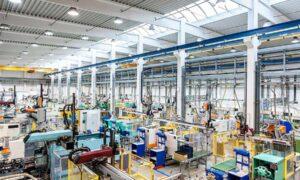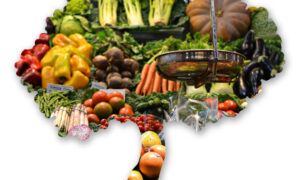
Food quality assurance in the food manufacturing sector has come of age, thanks to the awareness gained about the need to promote wellness in the manufacturing units. To ensure a safe and healthy production, adherence to hygiene standards is mandatory. This calls for constant monitoring of the factories, their equipment, work practices, and the working environment. A food quality assurance system assists in identifying the shortcomings and rectifying them before the products reach consumers.
Food manufacturers now prefer to go for assurance in cancer and cheese manufacturing, as the latter provides a platform for detecting flaws and failures early. The food quality assessment helps reduce the margin of waste. It is estimated that food losses account for more than 25% of the overall production costs. Hence, a food quality management team deployed in a manufacturing unit can detect faults as early as possible and fix them accordingly.
The value of a good assessment in the food manufacturing unit cannot be ruled out. It helps in identifying the deficiencies present in the finished product and subsequently improving the process of the entire unit. It also identifies the flaws existing in raw materials and their subsequent impact on the final product. The approach to food quality assurance in cheese and pate manufacturing is similar to food quality assessment done for other products.
Food quality inspectors must conduct thorough investigations before drawing any conclusions about any shortcomings. They identify the deficiencies by performing tests and carrying out random surveys. The validity of food quality assurance lies in its thoroughness and rigor of execution. The inspector collects as many details as possible from the factory, both manual and electronic. These include production records, shop stock, bulk and retail data, packing slips, and factory inventory lists.
The scope of food quality assurance includes various aspects of manufacturing processes. A thorough investigation of the manufacturing process is aimed at identifying the sources of contamination and the sources from which improvements can be made. The inspectors first examine the raw material used in the process and its characteristics, such as chemical composition, protein concentration, and salt content. The inspection also takes into account the final products’ appearance and color.
Quality control inspectors use a variety of techniques while conducting quality inspections. One of the techniques they use is the physical method, which includes several physical and chemical tests such as color, texture, smell, and entrance testing. They also carry out several activities, such as testing for excess moisture, the presence of lead, cysts, and any other defects that might exist in the products. There are some products for which testing for every possible defect is impractical, so it is sometimes impossible to identify all the defects. In such circumstances, additional tests, such as chemical-lead testing, are carried out.
When a product comes out of the manufacturing plant, it is checked thoroughly for quality by consumers and other experts who are not involved in the actual production. Consumer representatives or retailers who buy food products have special responsibility towards the products they buy and the suppliers they deal with. They ensure that the food is free from defects such as bad quality, dangerous ingredients, or off-coloring. They can check products such as cheese and paneer from a variety of places, such as supermarkets or specialist retailers.
Quality control testers make sure that the food produced is of high quality and meets specific hygiene standards. There is a special division within the Food and Drug Administration (FDA) dedicated to food product quality assurance for products and food facilities. This is one way that the FDA ensures that food products reach consumers safely and healthily.
General Imformation:
Food safety and quality play a vital role in food processing. It is important to protect customers from foodborne illnesses such as norovirus, salmonella, clostridium perfringens, campylobacter, etc. Maintaining food safety and quality requires a lot of routines to be followed across the supply chain, from farm to factory to fork.
So, food processing industries must implement safe food handling practices during the preparation, handling, and storage of food in order to maintain its quality and safety and avoid foodborne diseases. Our food industry experts help food businesses follow safety methods at every stage of the production cycle to ensure the safety and quality of their products.
For more blogs and information, you can also follow the link and connect. Also, if you are looking for food quality consultants, you may connect with us and get help from our 20+ years of verified and experienced consultants who can give you ideas, tactics,tactices and strategies. They have a market research plan and every detail that can help you enhance your business.





